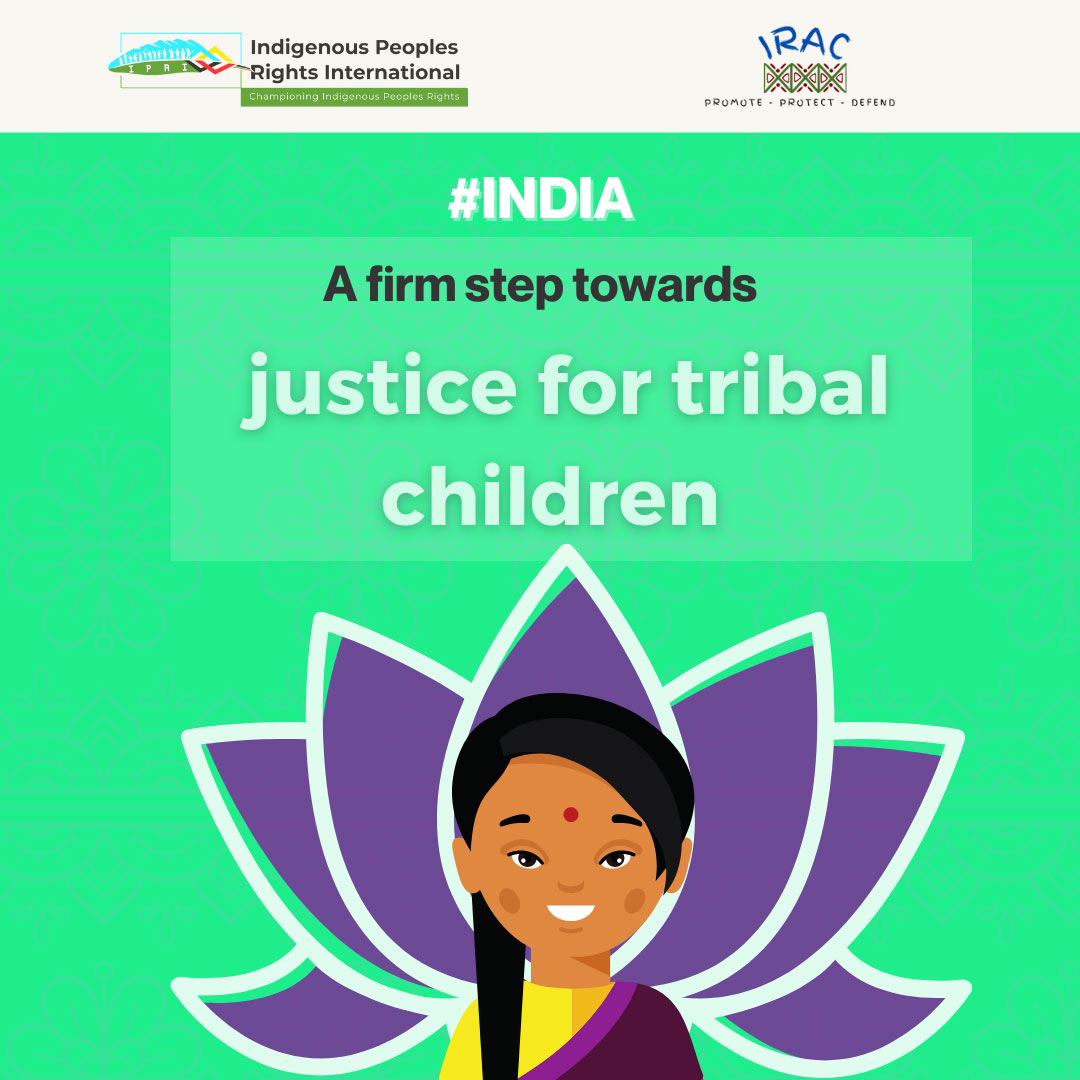
In July 2022, good news arrived for four tribal children in India, victims of serious human rights violations. The State informed that it had already sanctioned and started paying compensation for the sexual abuse suffered by the children at a government-run shelter home in Jashpur district of Chhattisgarh. In addition, two public servants of the shelter facility were arrested and jailed.
In October 2021, after investigating the facts, the Indigenous Rights Advocacy Centre (IRAC) – the country partner of IPRI in India- filed a complaint before the National Human Rights Commission (NHRC) against the rape of one tribal girl with disabilities and the sexual abuse/torture of five others. After admitting and numbering the complaint as Case No. 576/33/7/2021, the Commission issued notice to the District Magistrate, Jashpur, and the Senior Superintendent of Police, Jashpur to submit an action taken report within four weeks.
Since no report was submitted, the NHRC on February 7, 2022, took a “serious view of the non-responsive attitude of the concerned authorities” and issued a reminder to these authorities. Pursuant to the above directions, the Superintendent of Police, Jashpur, submitted a report dated February 28, 2022, about the progress of Case No. 576/33/7/2021.
On April 4, 2022, the NHRC once again directed the District Magistrate and Senior Superintendent of Police, Jashpur, to submit an additional report about the action taken regarding payment of monetary compensation to the victims. As the officials failed to submit a report, the NHRC on June 6, 2022 issued summons to the District Magistrate and the Senior Superintendent of Police, Jashpur to personally appear before it on July 25 along with requisite reports. This forced the Superintendent of Police to submit on July 1, 2022 anaction taken report detailing the actions taken in the complaint filed by IRAC.
The State government has sanctioned a total of Rs 1.62 million (20 285 USD) as compensation to four victims. Additionally, two public servants namely caretaker and guard of the shelter home were arrested and sent to judicial custody. Chargesheets have been submitted against them in the special court at Jashpur under the Indian Penal Code (IPC), the Protection of Children from Sexual Offences (POCSO) Act and the Scheduled Castes/Scheduled Tribes (Prevention of Atrocities) Act.
This advance in justice is a positive sign in a country where atrocities committed against Adivasi/tribal peoples have been on the rise. There are 104.3 million Indigenous Peoples or Scheduled Tribes, also called tribal or Adivasi in India. They constitute 8.6 percent of the country’s total population and 90 percent of them live in rural areas. Despite having special constitutional protection, the Adivasis have faced criminalization, violence, and impunity in the hands of the State and non-state actors.
According to IPRI’s most recent report on criminalization, in 2020, the conviction rate for crimes committed against the Adivasis was 28.5 percent despite provision for speedy trial in “Special Courts.” In the case of women and children, between the period of 2017 and 2019, conviction rate under Prevention of Atrocities Act has been as low as 26.86 percent while 84.09 percent of the cases are pending.
*For more information about IRAC, visit its website: https://irac.in or this article: https://bit.ly/IRACintervention

%2020.49.20.png)
